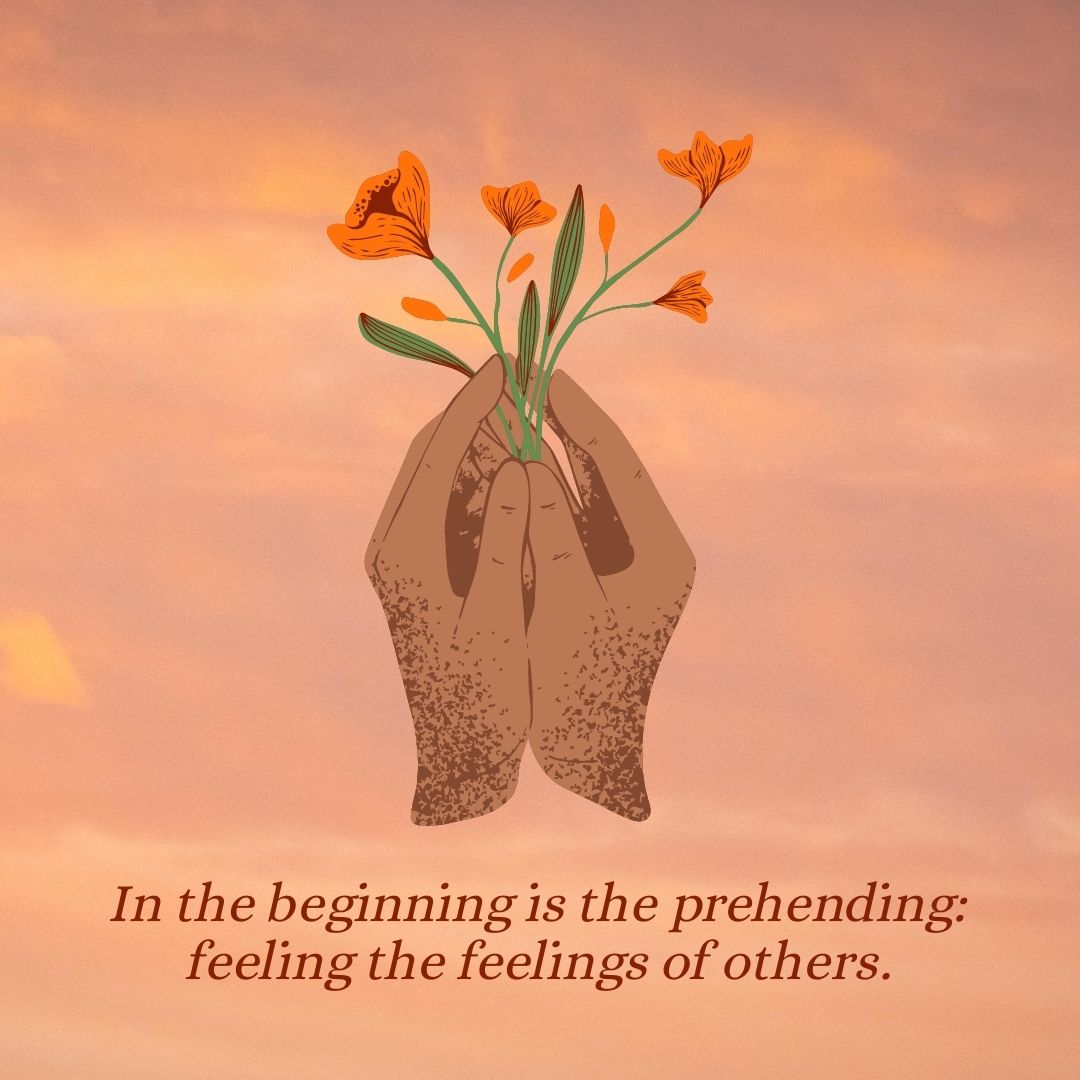Reverence for Life as Reverence for God
an open and relational ethic
indebted to Albert Schweitzer
"The ethic of Reverence for Life, therefore, comprehends within itself everything that can be described as love, devotion, and sympathy whether in suffering, joy, or effort." It is a vision and an attitude of mind that emphasizes the connections which tie us to other people, animals and objects. Reverence for life takes us beyond our limited loyalties to family and a small circle of friends to a much more expansive circle. It also wipes away the old divisions and creates pathways of cooperation that are not possible when people accentuate separations rather than unity. In another sermon, Schweitzer says: "Reverence for the infinity of life means removal of the alienation, restoration of empathy, compassion, sympathy." (Mary Ann and Frederic Brussat)
What is the role of reverence for life in open and relational ethics?
Schweitzer describes reverence as an attitude of mind that emphasize the connections which tie us to other people, animals, and objects. Reverence wipes away old visions and creates pathways of cooperation. It is deeply relational and inclusive; its emotional qualities include love, devotion, and sympathy: feeling the feelings of others, including animals, with tender care and acting upon those feelings in positive ways.
If, in the spirit of process theology, we in the open and relational world think of God as "feeling the feelings” of all living beings with "tender care," then it follows that God has - or better is - an ongoing act of reverence for life, of sympathy and care. Maybe even devotion, because God, too, is devoted to the well-being of life. And it follows that, if we humans put on the mind of God as best we can, we live with such reverence. Indeed, in so doing we participate in God's very life.
The task at hand is to work out what it can mean, practically, to live with reverence: individually and communally. What does it mean for our relations with other people, with other animals, with the earth and, for that matter, with the heavens? Can we feel the feelings of God, too? Is it possible that, when we feel the feelings of others in sympathetic ways, we are feeling God's feelings, too? Might reverence for life be our way of touching God, even if some among us (our agnostic and atheist friends) aren't sure we believe in God in the first place?
Thanks to Clarence White's essay below for pointing Christians in the right direction; let us add "animals and other living beings" to the "people" he rightly includes as beneficiaries of a relational ethic. And thanks to Albert Schweitzer for giving us a words for the direction we can take. May open and relational thinkers, of whatever faith or lack thereof, adopt reverence as their way of walking in the light of God.
- Jay McDaniel, 12/14/2021
What is the role of reverence for life in open and relational ethics?
Schweitzer describes reverence as an attitude of mind that emphasize the connections which tie us to other people, animals, and objects. Reverence wipes away old visions and creates pathways of cooperation. It is deeply relational and inclusive; its emotional qualities include love, devotion, and sympathy: feeling the feelings of others, including animals, with tender care and acting upon those feelings in positive ways.
If, in the spirit of process theology, we in the open and relational world think of God as "feeling the feelings” of all living beings with "tender care," then it follows that God has - or better is - an ongoing act of reverence for life, of sympathy and care. Maybe even devotion, because God, too, is devoted to the well-being of life. And it follows that, if we humans put on the mind of God as best we can, we live with such reverence. Indeed, in so doing we participate in God's very life.
The task at hand is to work out what it can mean, practically, to live with reverence: individually and communally. What does it mean for our relations with other people, with other animals, with the earth and, for that matter, with the heavens? Can we feel the feelings of God, too? Is it possible that, when we feel the feelings of others in sympathetic ways, we are feeling God's feelings, too? Might reverence for life be our way of touching God, even if some among us (our agnostic and atheist friends) aren't sure we believe in God in the first place?
Thanks to Clarence White's essay below for pointing Christians in the right direction; let us add "animals and other living beings" to the "people" he rightly includes as beneficiaries of a relational ethic. And thanks to Albert Schweitzer for giving us a words for the direction we can take. May open and relational thinkers, of whatever faith or lack thereof, adopt reverence as their way of walking in the light of God.
- Jay McDaniel, 12/14/2021


